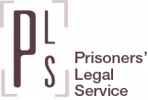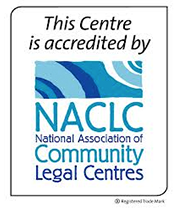In November 2015 the Prisoners Legal Service represented a parolee with respect to a judicial review of the Queensland Community Corrections Board (“QCCB”) decision to place a condition on her parole, that she was not to publish any document sustainably connected with or describing any detail of the offence for which she was on parole, or with any experience in prison or other experience with the Department of Corrective Services, or any offence committed by another person.
The parolee, T wished to publish a book about her early life, her experiences in prison, and its aftermath, provoking discussion about how society responds to offenders and their punishment. In response to her seeking permission to publish such a book, after consideration, the Parole Board sought to introduce new conditions on her parole to restrict her from doing so.
In inserting such a condition in their amended parole order, the QCCB reasons for such a condition included that the possible sensation and publicity that the book could generate may be a risk to her continuing good behaviour and raise the possibility of committing another offence, despite reports commenting on her good behavior while she had been in the community.
The Parole Board did not specify what new offences it believed the parolee would/could be at risk of T
T instructed the Prisoners’ Legal Service, who filed for a judicial review. Before Justice Peter Lyons of the Supreme Court of Queensland, the PLS argued, inter alia, that the Board’s decision to impose such a parole condition infringed on the implied freedom to political discussion as per the test held in Lange v Australian Broadcasting Corporation (1997) 189 CLR 520.
Justice Lyons found that the Board imposing the restriction on publishing a book like sought to do, infringed the implied freedom of political communication. In this case the infringement was not adapted to the legitimate ends purported under the statute, that is to prevent those on parole from committing new offences, as the Board could not indicate which offence may be committed. As noted by Justice Lyons at page 25 of his judgement:-
Although the “Statement of Reasons contained an assertion that the publicity generated by a book written by the applicant might affect her good behaviour, no basis for that assertion was identified. It may be that a book written by the applicant describing her offending in detail could be regarded as sensationalistic, and would attract a great deal of publicity. Nothing was identified in the material as providing a rational basis for thinking that such publicity might prejudice the applicant’s continued good conduct. In any event, it is not difficult to think of types of book which the applicant might write which are substantially connected with her offending which could not be so described. The same observations apply with greater force to a book the applicant might write about the offending of others”.
His Honour further noted at page 26 of his judgment: –
“The decision to impose condition 12 was not based on a consideration of the possibility that the applicant might commit an offence under s 132 of the CS Act. I have found, based on the respondent’s published statements at the time of the decisions, and contrary to what appears in the summary at the end of the SOR, that its reason for imposing the condition was to stop the applicant committing an offence. It can impose such conditions where it reasonably considers them necessary to stop the applicant from committing an offence. No potentially relevant offence has been identified. Assuming the respondent considered the condition necessary to stop the applicant committing an offence, its conclusion was not reasonable. I would add that there was no material before the respondent to suggest any likelihood that the applicant would engage in any unlawful conduct. On the contrary, the reports to the respondent spoke well of her.
This decision in the case is important in that confirms the proposition that governmental decision makers must not overstep their granted powers, and that Constitutional rights and freedoms must be considered and respected by governmental decision makers.
For more information about the case, please visit the Supreme Court’s Library at: http://archive.sclqld.org.au/qjudgment/2015/QSC15-334.pdf


